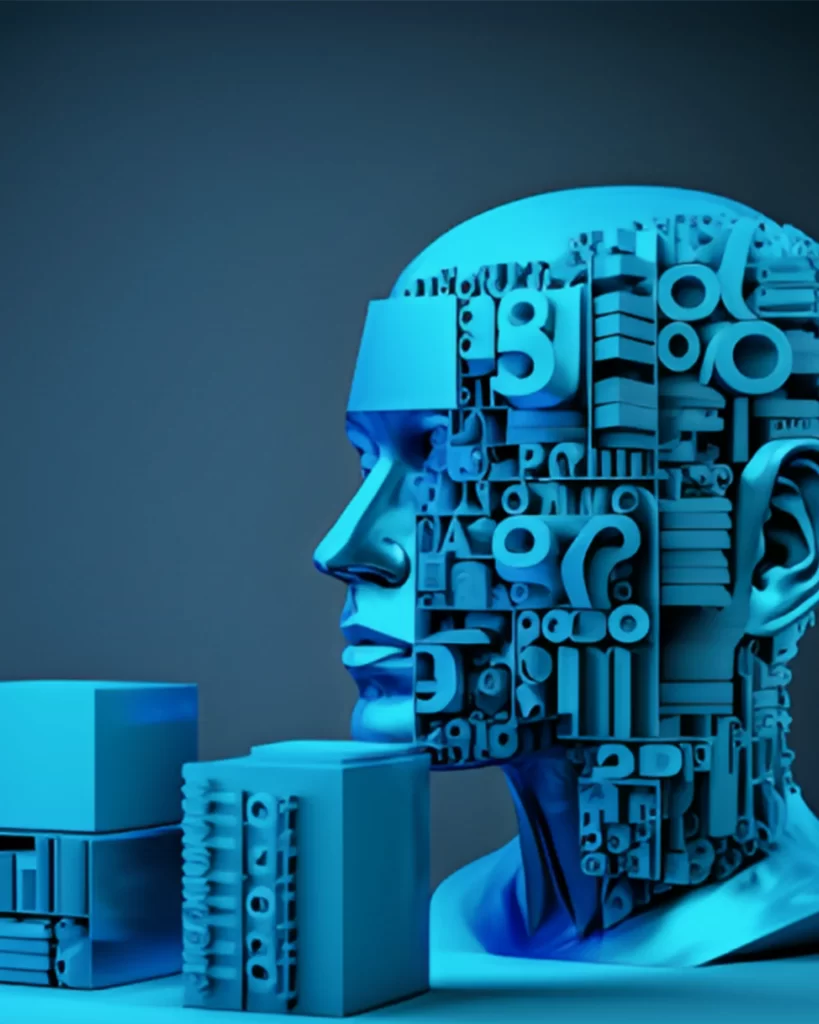Smart Medicine: How AI is Shaping the Future of Healthcare
AI is reshaping industries worldwide, revolutionizing operations and driving innovation. In healthcare, it’s more than just a tech upgrade, it’s a lifesaving transformation. For leaders like CEOs and CIOs, AI tackles critical challenges: rising costs, workforce gaps, operational complexity, and the demand for personalized, patient-first care. It’s not just a trend; it’s a strategic must-have.
AI’s Transformative Role Across Industries
AI is reshaping industries at warp speed—fueling fraud detection in finance, optimizing supply chains in logistics, and supercharging quality control in manufacturing. It’s not just about staying competitive; it’s about unlocking next-gen innovation.In healthcare, the stakes are sky-high. From decoding complex data to predicting outcomes and enhancing diagnostics, AI is rewriting the playbook—shifting from efficiency gains to life-saving impact.
AI in Healthcare: The Strategic Compass for Decision-Makers
For healthcare trailblazers, embracing AI is mission-critical. With an aging population, a surge in chronic illnesses, and skyrocketing patient demands, the pressure is real. CEOs, CXOs, and CIOs must decode these complexities while steering scalable growth, elevating care quality, and staying on the right side of regulatory frameworks.
AI offers several benefits for healthcare leaders, such as:
1. Better Operational Efficiency: AI can handle routine tasks, cutting costs and allowing more time for important work. It can also help manage hospital resources better, keeping things running smoothly even when busy.
2. Improved Patient Care: AI helps in diagnosing diseases early and creating personalized treatments. This leads to better patient results, which boosts the organization’s reputation and performance.
3. Useful Data Insights: Healthcare creates a lot of data that often goes unused. AI can analyze this data to give valuable information, helping leaders make smart decisions about patient care, resource use, and overall strategy.
The Urgency of AI Adoption in Healthcare
The healthcare industry is at a tipping point delay in adopting AI tech means missed opportunities and growing inefficiencies. Here’s why the clock is ticking for healthcare leaders:
Rising Costs of Care: Healthcare spending is on the rise, and resources are tight. AI-driven solutions like cost prediction algorithms and automated workflows are crucial for slashing operational costs without sacrificing quality.
Global Workforce Crisis: There’s a global shortage of skilled healthcare workers, compounded by burnout and high turnover. AI is stepping up by offloading administrative tasks, aiding clinical decisions, and enabling telemedicine to bridge gaps in underserved areas.Tech Advancements: AI tech is advancing at breakneck speed. Generative AI is transforming medical training and patient education, while predictive models are unlocking game-changing possibilities in preventative care.
Personalized Patient Care: Today’s patients demand tailored, seamless experiences. AI is the key to delivering personalized care—from real-time health monitoring to hyper-personalized treatment plans, matching the expectations they have from tech in other industries.
From Code to Cure: The Evolution of AI in Healthcare
The rise of AI in healthcare is changing the game entirely. Starting from simple algorithms to today’s advanced systems, AI has become a powerful force transforming how we diagnose, treat, and care for patients. It’s shifting healthcare from guesswork to precision, making medicine smarter, faster, and more personalized. This isn’t just progress—it’s the future of healthcare happening right now.
Historical Development of AI in Medical Science
AI and healthcare have shared a transformative journey since the 1970s, beginning with expert systems like MYCIN, which pioneered AI diagnostics despite tech limitations. The 1990s saw EHRs flood the field with data, but early algorithms couldn’t unlock its full potential. Enter the 2000s: machine learning ignited predictive analytics, paving the way for today’s deep learning marvels that decode complex medical datasets with unmatched precision.
Key Milestones in AI-Driven Healthcare
AI has transformed healthcare with groundbreaking advancements, from predictive analytics to deep learning in medical imaging. These milestones highlight how AI is enhancing diagnostics, treatment, and personalized care, shaping the future of medicine.
Introduction of Predictive Analytics
Predictive analytics became a powerful healthcare tool in the early 2000s. These tools used statistical techniques and machine learning to forecast patient outcomes, predict disease progression, and optimize resource allocation. AI algorithms in predictive analytics helped hospitals manage patient flow, which reduced emergency room overcrowding.
Advancements in Medical Imaging
Deep learning techniques caused a revolution in medical imaging during the 2010s. Researchers developed algorithms to analyze X-rays, CT scans, and MRIs. These algorithms identified anomalies with precision that matched or sometimes exceeded human radiologists. Google’s DeepMind showed groundbreaking work in diagnosing eye diseases using AI-powered imaging tools.
AI-Powered Diagnostics
The addition of AI to diagnostics marked another major milestone. AI systems like IBM Watson for Oncology started to provide oncologists with evidence-based treatment recommendations. While early versions faced challenges, these systems showed AI’s potential to improve diagnostic accuracy and speed up treatment.
Natural Language Processing (NLP) in Healthcare
NLP applications became essential to extract insights from unstructured data such as clinical notes and medical literature. AI-powered systems began to process millions of medical documents to identify patterns and connections. This enabled faster research and led to better patient outcomes.
–Personalized Medicine and Genomics
AI’s arrival in genomics kicked off the age of tailored healthcare. By examining genetic information, AI systems could spot people with higher chances of specific health issues and suggest custom treatments. Firms such as 23andMe have used AI to make sense of genetic data on a large scale giving users helpful insights they can act on.
AI: Shifting Healthcare from Reactive to Proactive
AI is transforming healthcare by moving from traditional reactive treatment models to proactive care focused on prevention and early intervention.
Early Disease Detection
AI scans patient data for early warning signs, detecting conditions like atrial fibrillation before symptoms show up, enabling faster action.
Predictive Healthcare
AI-driven predictive models forecast disease outbreaks and assess chronic condition risks, allowing preemptive healthcare measures to reduce system strain.
Precision Medicine
AI analyzes genetic and lifestyle data to create personalized treatment plans, boosting outcomes and minimizing side effects.Patient-Centric Care
AI-powered virtual assistants and chatbots engage patients with tailored advice, reminders, and support, improving proactive self-care.
Key Applications
AI is revolutionizing healthcare by enhancing diagnostics, streamlining operations, and transforming patient care. From early disease detection to personalized treatment plans, AI is reshaping healthcare for better efficiency and outcomes.
Diagnostics and Precision Medicine
AI-powered imaging tools are revolutionizing diagnostics by detecting abnormalities like cancer and cardiovascular conditions with precision, far earlier than traditional methods. In precision medicine, AI integrates genomic and health data to create personalized treatment plans, optimizing efficacy and reducing side effects.
Operational Efficiency
AI optimizes healthcare operations with predictive analytics for staffing, patient admissions, and resource allocation. In pharma logistics, AI models ensure supply chain efficiency, preventing shortages and minimizing waste, which improves cost-effectiveness and patient care.
Patient Monitoring and Virtual Care
AI-driven wearables continuously track vital signs, alerting providers to abnormalities for timely intervention. Virtual assistants engage patients with personalized care, reminders, and follow-up advice, boosting health outcomes and adherence.
Drug Discovery and Development
AI accelerates drug discovery by analyzing massive datasets, predicting molecular interactions, and reducing research timelines. During COVID-19, AI helped in vaccine development by predicting effective formulations.Robotic Surgery and Automation
AI-powered robotic surgery systems improve precision in complex procedures, such as neurosurgery and cardiac interventions. AI also automates repetitive tasks like medication dispensing and diagnostics, freeing up clinicians to focus on patient care
Addressing Healthcare Challenges with AI
AI is well-equipped to solve key issues in healthcare:
Workforce Shortages: Automation minimizes clinician workload, freeing up time for critical tasks.
Cost Reduction: AI optimizes operational processes and resource allocation, lowering healthcare costs.
Access to Care: AI-powered telemedicine bridges gaps in underserved regions by enabling remote diagnostics and consultations.
Benefits for Stakeholders
AI in healthcare brings transformative benefits to all stakeholders within the ecosystem, enhancing efficiency, accuracy, and accessibility across the board.
AI offers significant advantages across the healthcare ecosystem:For Providers: Data-driven insights enhance clinical decision-making, reduce diagnostic errors, and decrease burnou
For Patients: Personalized care and virtual health solutions boost accessibility and care quality.
For Administrators: Streamlined workflows and cost reductions increase operational efficiency and profitability.
Challenges and Ethical Considerations
While AI offers immense potential in healthcare, its adoption raises important challenges and ethical considerations that must be addressed to ensure responsible implementation.
Despite its potential, AI faces several challenges:
1.Data Privacy: Protecting sensitive healthcare data with robust security protocols is critical.
2.Algorithm Bias: Incomplete training data may perpetuate healthcare disparities, necessitating more inclusive model development.
3.Balancing Automation and Empathy: While automation enhances efficiency, human empathy remains crucial to maintaining trust and emotional connections with patients.
Case Studies and Real-World Impact
Predictive Analytics in Hospitals: AI-driven tools have reduced wait times and optimized bed usage through accurate patient admission predictions.
AI-Led Imaging Diagnostics: Platforms like DeepMind have demonstrated diagnostic accuracy, surpassing human-level expertise in detecting eye diseases.
Drug Discovery Success: AI’s ability to accelerate vaccine development during the pandemic highlights its transformative impact on pharmaceutical research.
Strategic Insights for AI in Healthcare
To fully harness AI’s disruptive potential in healthcare, decision-makers need to adopt forward-thinking, tech-driven strategies for seamless integration and optimization.
To unlock AI’s full potential, leaders need to take strategic steps:
Integration: Align AI efforts with organizational goals for smooth implementation.
Collaboration: Build cross-functional teams with both clinical and tech expertise to lead AI deployment.
Partnerships: Team up with tech innovators to get tailored AI solutions for healthcare needs.
Future Trends in AI and Healthcare
The future of AI in healthcare is poised to unlock groundbreaking advancements, transforming patient care, medical training, and global health accessibility.
AI’s future in healthcare is packed with potential:
Precision Healthcare: AI will continue to personalize treatments by analyzing individual health data.
Generative AI in Training: AI simulations will revolutionize how healthcare professionals learn and practice.
Global Health Equity: AI will help improve healthcare access, especially in underserved regions.
Conclusion
AI is revolutionizing healthcare, making care more precise, efficient, and patient-centric. For leaders like CEOs, CXOs, and CIOs, adopting AI isn’t just a smart move, it’s essential for staying competitive. By embracing AI, healthcare can achieve incredible advancements, creating a healthier and more equitable future for everyone.








